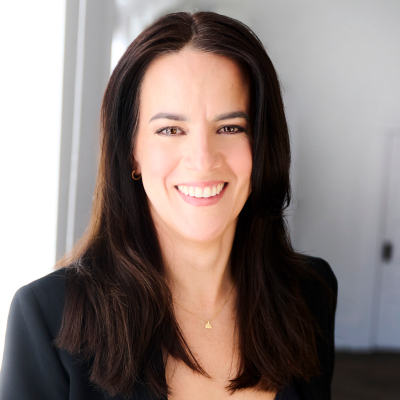This is the first in a series of articles about family enterprise founders who are contemplating an exit by Elke Rubach, president of Rubach Wealth. In this series, we explore the quiet fatigue that founders rarely admit to, why holding on too long can damage wealth and relationships, how silence can breed entitlement, and how to redefine retirement.
There’s a kind of fatigue that only founders of family enterprises truly know.

It’s not the exhaustion you fix with a vacation. It’s quieter, heavier, creeping in after decades of carrying the business, the family and the weight of being the one everyone relies on.
At first, it feels manageable. One more year at the helm. One more transition postponed. One more problem solved. But over time, the spark dims. You notice yourself avoiding conversations about the future. And deep down, an unfamiliar thought begins to surface: “How much longer can I really do this?”
This is founder fatigue, and it doesn’t just drain you. If left unacknowledged, it quietly chips away at the very legacy you’ve worked so hard to build. August invites a pause, when many step back to rest and reflect. It’s a good time to take stock of your legacy and the structures that protect it.
What founder fatigue really costs
When you’re tired, decisions are harder to make. You put off updating estate plans that no longer reflect reality. Succession conversations are kept “on hold.” You convince yourself there’s still plenty of time to sort it all out.
But in the background, risks grow. Outdated tax and estate structures silently become ticking time bombs, especially with evolving Canadian tax rules. Capital gains exposure on family businesses and real estate accumulates, setting heirs up for massive tax bills they’re unprepared to handle. Probate and liquidity issues remain unresolved, forcing the next generation to sell assets—or worse, the business itself—to cover tax obligations.
Plus, family dynamics can shift, with adult children growing resentful while they wait for clarity. Or they disengage entirely.
And here’s the paradox: The more fatigued you are, the tighter you grip the business. It feels like control is the answer. But gripping harder doesn’t protect the legacy—it often weakens it.
How to know if you’re ‘super-tired’
Be brutally honest with yourself:
- Do you feel more drained than energized by the business lately?
- Have you avoided serious succession or estate discussions in the past year?
- When you imagine your heirs leading, do you feel more fear than trust?
- Does the idea of stepping back make you secretly panic because you’re not sure what would happen next?
If two or more of these resonate, you’re likely carrying far more than you’re admitting—to yourself or anyone else.
The hidden risk of waiting too long
Wealth is more fragile than it looks, even at the highest levels.
When founders wait too long to rest, recalibrate and plan, transitions become rushed. Rushed transitions lead to unnecessary taxes, forced sales and family disputes that can destroy value faster than any market downturn.
Even billion-dollar families have watched legacies crumble. In some cases, outdated shareholder agreements triggered massive tax events on death. In others, inadequate liquidity planning forced heirs to sell core assets just to pay the Canada Revenue Agency. Or the family had no clear governance framework, leaving siblings in bitter legal disputes that drained the estate for years.
Fatigue doesn’t just affect you. It affects the entire structure around you.
Rest is not indulgence—it’s protection
Taking a step back isn’t weakness; it’s strategy. When you’re rested, you have the clarity to ask the deeper questions you’ve been avoiding, such as:
- “What would happen to the business if I stepped away tomorrow?”
- “Are my tax and estate structures still protecting my family—or quietly exposing them?”
- “What does ‘enough’ look like for me personally, and what do I actually want for the next generation?”
These questions can’t be answered well when you’re running on fumes. This is where legacy work begins—not in the boardroom or the lawyer’s office, but with a clear-headed look at your own readiness. Because the reality is this: if you don’t make these decisions while you still can, someone else will have to make them for you.
So ask yourself one final time: Are you super-tired?
If the answer is yes, it’s not an ending. It’s the moment you can finally start shaping what comes next, with intention and not by default. Your next move isn’t about working harder. It’s about protecting what matters most—your family, your business and the values behind both.
Elke Rubach is a Certified Financial Planner with CLU and MFA-P designations. Her expertise lies in optimizing income and tax efficiencies, achieving cohesiveness in financial and estate plans, and providing ongoing asset management strategies that foster wealth accumulation and growth. Elke is a reformed lawyer who earned her graduate degree in law, with a focus on banking and finance, at the London School of Economics, where she studied on a Chevening Scholarship. She worked as an associate at the London (U.K.) and Toronto offices of the law firm McCarthy Tetrault. During a stint in banking, Elke observed the life-changing impact of good financial advice and decided to switch to a career in financial planning and wealth management. She founded Toronto-based Rubach Wealth in 2012. Today, Elke is a sought-after speaker on wealth management, estate planning and philanthropy. She’s the founder of Fashion Heals for SickKids, which has raised more than $500,000 for pediatric cancer care and research since 2016. She also gives back with board and volunteer commitments with the Professional Advisory Council for SickKids Foundation, the Investment Committee at the Office of the Public Guardian, the advisory board for Transpod Inc., and the board of Ronald McDonald House Charities in Toronto.
The Canadian Family Offices newsletter comes out on Sundays and Wednesdays. If you are interested in stories about Canadian enterprising families, family offices and the professionals who work with them, but like your content aggregated, you can sign up for our free newsletter here.
Please visit here to see information about our standards of journalistic excellence.




